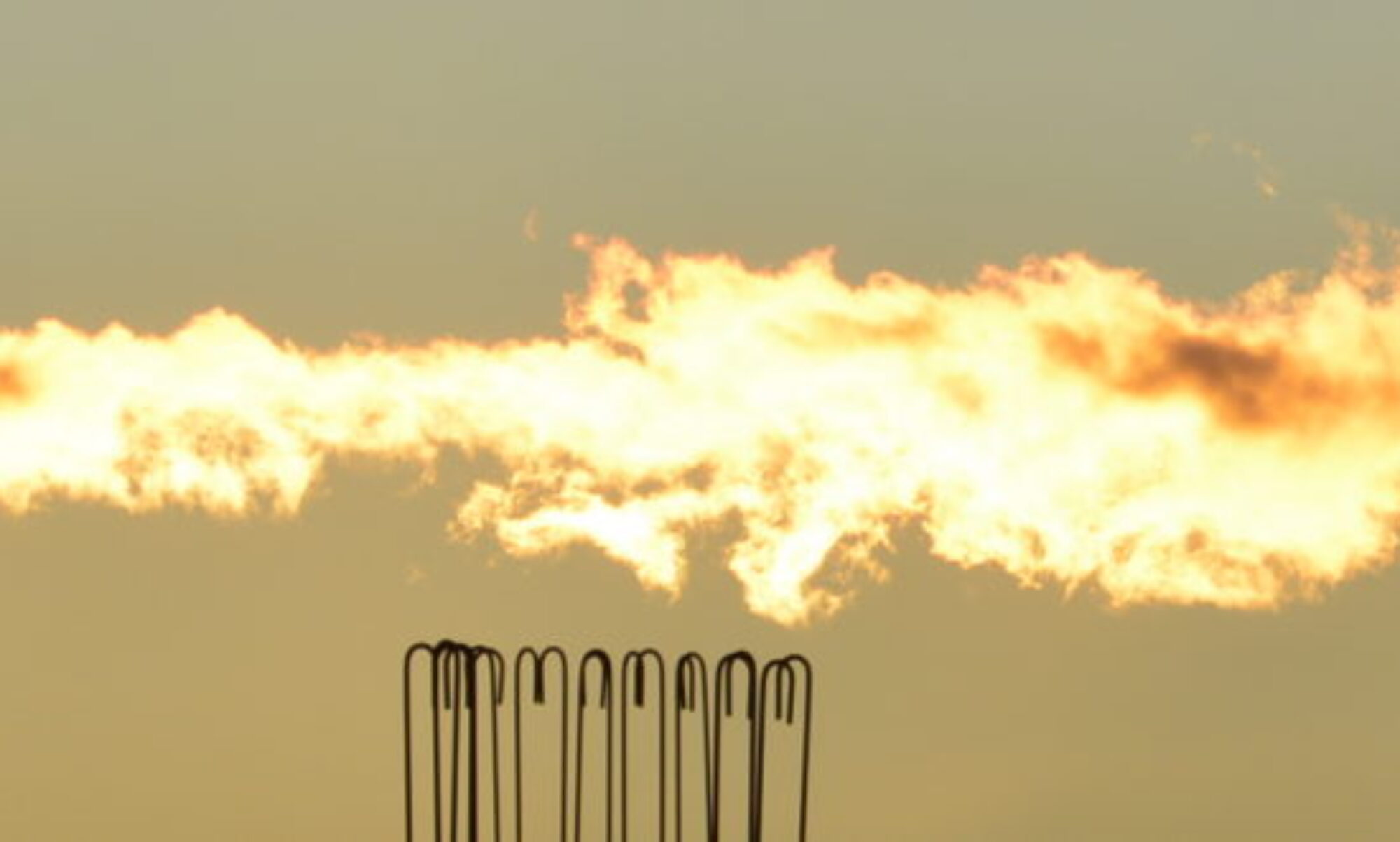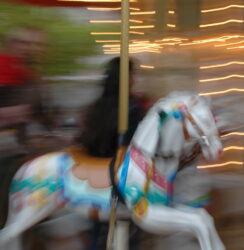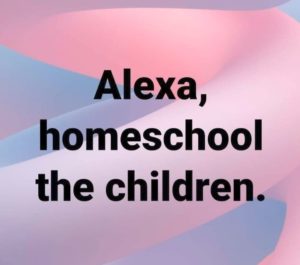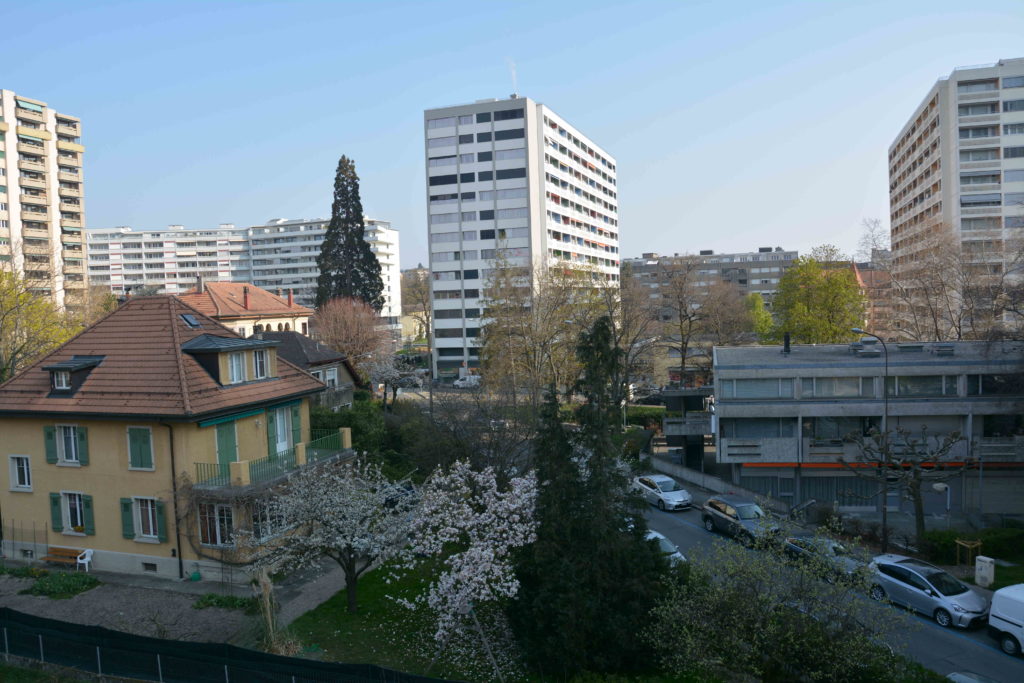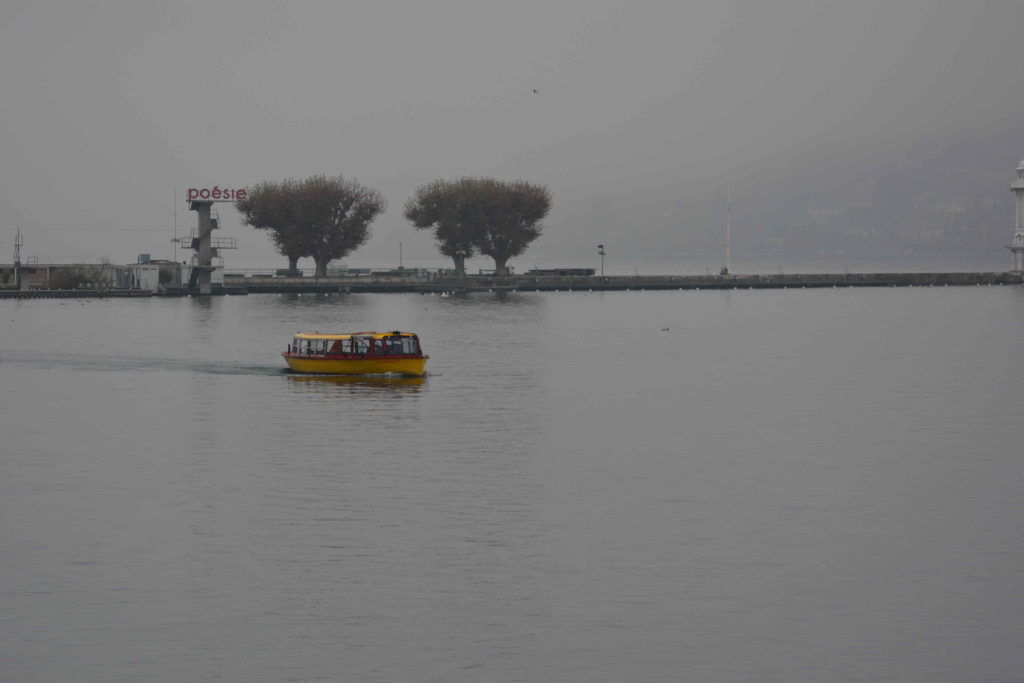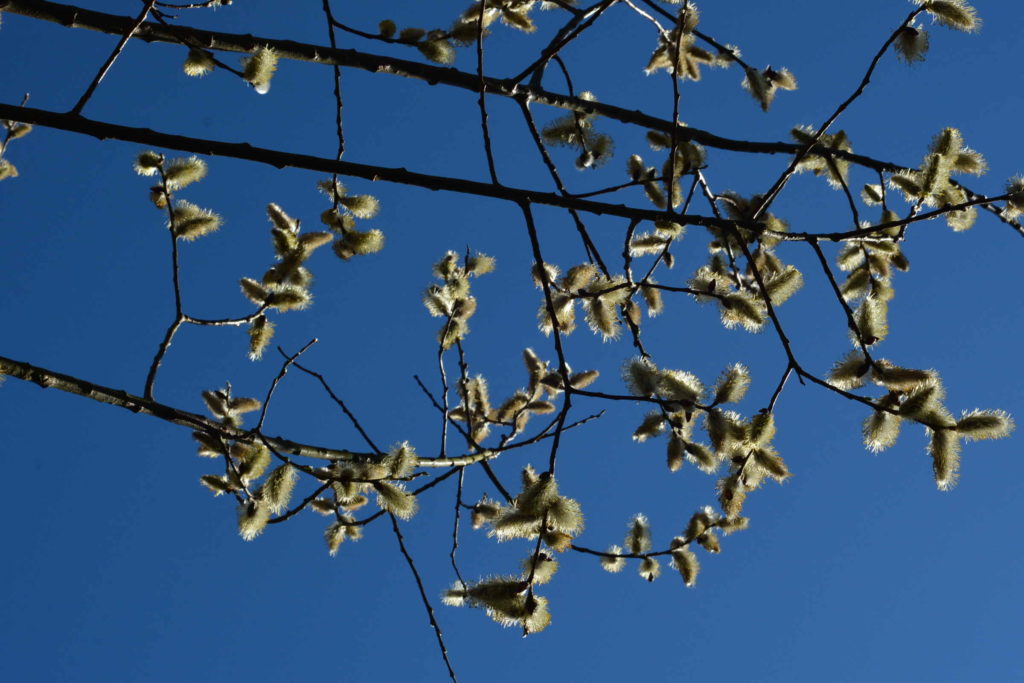We’ve become used to economic crises, since they are endemic to our system. And some of us might remember the oil crises of the ‘70s (from which we learned very little) and the brown-outs and black-outs, and the rocketing fuel costs. But the past year delivered a crisis several generations of westerners simply haven’t experienced. Here’s a brief look back at the first months and my experience with remote teaching.
In Switzerland, the state of emergency triggering the lockdown was announced on Friday, March 13. It had been expected. A few weeks earlier, the first cases of covid-19 had appeared in Switzerland (in Ticino), so the Federal Council gradually prohibited gatherings of more than 1,000 people, then 100, then less. That put paid to the big trade fairs, like the Salon de l’Auto in Geneva, Baselworld (watches and jewelry) and traditional events like the Fat Tuesday revelry in Basel. It was obvious that schools would have to shut down as well. Two weeks prior, in my school, we had discussed the skiing week and whether it would be possible. Some thought, yes. The thought fizzled. Hope still remained for the school outing at the end of the year… Then the axe fell.
As a substitute teacher now with long-term contract, I was in charge of a class of eighteen teenagers in their last year before entering the equivalent of high school. At first, they were thrilled not to have to go to school. Some were a little worried about their grades, which they hoped to improve in the third term that had just started. Some were already eying a professional path and were worried about it being in jeopardy. My co-main-teacher and I had a special duties towards them: Throughout the school year, we were asked to prepare them for the working life, showing them the many possibilities of achieving their dream or, if at all possible, finding that dream.
Leaving the schoolhouse on that Friday had a mystical feeling to it. There was no drama, no suggestive music, no worries. Just a deafening silence. The airport, which is about 500 yards from the school as the crow flies, had fallen silent, and the air had a whiff of spring unadulterated by the usual scent of burning kerosene.
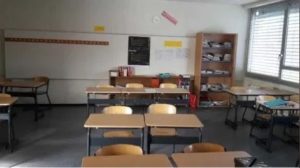
The following Monday morning, my co-teacher and I got the class together on WhatsApp for a little chat about how we would proceed. Our orders were to use the Gmail platform, which features “classrooms,” a meeting app, email, etc… But my colleague, far younger than I and a scientist, knew about gaming. SHe had the brilliant idea of setting up a server on the Discord platform, which is not only quite easy to use, but was also familiar to many of our students. That afternoon, I went to school for the last time to gather the books the students had left behind not thinking that the lockdown would happen, and to pick up our class plant.
Last year I wrote about this moment, which some suggested was like a vacation. “A vacation is planned, implemented, executed. It comes with “vacation stress,” the unwritten edict that says: “Thou shalt relax and be nice to everyone and not think of work.” Sheltering-in-place, on the other hand, is like having been on a demented carousel one moment, and being yanked off and cast into limbo the next.”
Revving up
From the start, we felt it was important for the kids to see the positive aspects of the situation. I sent around a few paragraphs explaining how the work environment of the future was demanding more independence from employees anyway (a concept called Work 4.0 that I had had to write about for a company, you can read about it here). The lockdown, I pointed out, would be excellent training in self-motivation, in getting things done, communicating properly, staying “with the team,” as it were. This is what freelancers do every day, anyway (see box below).
This little pep-talk, which I repeated several times during the lockdown, had an effect on some. One boy later recalled how hard it was to work for ten minutes in silence, without the noise of the class in the background (these were very chatty kids). They were given enough work to do for half a day. They received the work in one-week batches and could do the work whenever they pleased, though as a teacher of English and German, I often asked them to be strict about doing a bit every day. Several learned to communicate their questions or problems in a timely fashion and to actually space out out their work so as to make it doable, rather than wait for the last minute. Some, of course, disappeared and even calls to the parents couldn’t get them to their desks.
For a generation that has grown up with computers and online, their actual skills in this area were often sorely lacking. They could get pics onto Instagram within seconds, but the computer as a tool was in many cases beyond their abilities. It was time to learn by doing, which is probably the best way.
Back and forth
One key to our online teaching was communication. My colleague and I decided to have regular meetings on the platform. Meet (the app) was not a favorite, mostly, we suspected, because they valued their privacy and were probably sitting in bed in their PJs most of the day. So on Mondays, Wednesdays and Fridays we had a conference call at 11.30 a.m. to listen to their questions and problems. Otherwise, they were free to contact us, and we would respond fairly quickly. At all hours, I might add. I remember one evening helping a student with her French reading, a chapter of a book she did not quite understand. So we worked on it together for nearly an hour. Several did their homework after 10 p.m., which is too late. One morning early – 4:15 a.m., I am an early riser – I found two students chatting away online and had to convince them to get to bed.
Around the second week, I was contacted by a journalist from the Swiss Radio and Television, who wanted to know what was special about the lockdown, what experience people were having that was brand new. As an incurable optimist, I figured she would be interested to know something about the experience of teachers. And so I described how we, the adults, their teachers, had suddenly entered the world where they spent a lot of time. It was a great moment to share their experience, and to give them a bit of guidance in the utility and dangers of the Internet. It bred a sense of familiarity, too, because we were no longer physically present and applying the usual disciplinary methods. They would bicker and joke around just as they did in class, and occasionally we had to remind them that we were still their teachers. It revealed how vulnerable they could become when not seeing who is communicating with them. A physical voice can be very different from the words on a page.

It was probably not a very interesting observation, because the journo was audibly checking messages on the other end and waiting desperately for me to finish my three or four descriptive sentences. I don’t think she even got my name right. That’s perhaps one of the problems with news media, they do need the spectacular to attract attention, and the subtle gets kicked to the curb.
Epilogue
This regimen lasted nearly two months. The kids would struggle a bit with the IT, somehow get the work back to me for corrections. We did one or two classes online with Meet to get some oral work done. Few showed up for these confabs. It was a bit of a struggle, but, in time, a number of the kids started getting a groove. Some even benefited from the occasional one-on-one classes. The bickering (my class had a few high-level bickerers), while irritating, suggested that they were still engaged with each other, and always offered opportunities for learning social manners.
We returned to school in half-classes on May 11. There were to be no exams, the final grades would be those at the end of the second term. The feedback on the nearly two months of online schooling was mixed. Most students in my class were happy to be back in physical contact with their friends. Even seeing their old teach seemed agreeable. The familiarity continued in the classroom, but as an adult and a teacher you have to keep a certain distance. We are not pals, we are not family. Many felt, too, that testing for grades was stressful and somewhat spoiled the fun of learning. We discussed this issue, and I had to agree with them, but the problem remained in how to evaluate the kids. The idea of no grading is good, but it does need some preparation. The emphasis is on self-responsibility. What do you do with students who are simply different, whose experience has turned them against any organized society?
Soon, we were back at exploring the curriculum, but without the prize and coercion of grades. This held for another month or so. Then, the promise of summer, the balmy air, the brilliant colors, the the glimmering of freedom till September pried their teenage souls from the classroom, the reading, the maths, the grammar, the constraints. It was time to let them go. My colleague and I organized a picknick after the official end of school. Eleven came.
Those I have seen since are doing well.
In the end, the students who already worked well in class, were also the ones who managed the online learning as well. A few did go AWOL. The parents might have helped, but they, too, were probably too taxed by the situation, though some failed to give their children the proper aural space to work in (in one case, I heard a dad speaking loudly into his phone, while his child was trying to read).
The pandemic is over a year old, now, and people are getting sick of it, while many are still getting sick from it. But the virus doesn’t care whether or not you’re sick of its presence. This too shall pass, as they say, so me must deal with it. Young people are having a hard time with the lockdown. But hand-wringing, moaning or spouting ridiculous conspiracy theories is not particularly helpful. It behooves us adults to remain stable, supportive, encouraging. Remember the film La vita e bella? Roberto Benigni guides his young son through the trials and tribulations of a concentration camp as if it were a game? That may be where we should all be. In all crises, adults must remain adults, and that does not mean being a pill. It means maintaining your humor, your optimism, your reason. Moaning and groaning about the lockdown and cursing at things you cannot change is not adult. To quote Seneca: “Man is affected not by events but by the view he takes of them.”
The Box: (I wrote about this last year already : “First injunction, therefore, is to rein in time, set up a rhythm, and stick to it. Your health depends on good sleep, some exercise, and attention to nutrition. Excellence is habit, to paraphrase Aristotle, and it does apply to surviving confinements of all sorts. Chatty aside: I hear so many people, even friends, complaining about being at home in front of the computer, not seeing anyone during the lockdown… I’d like to say: Now you know what it feels like, welcome to my world!).
[contact-form][contact-field label=”Name” type=”name” required=”true” /][contact-field label=”Email” type=”email” required=”true” /][contact-field label=”Website” type=”url” /][contact-field label=”Message” type=”textarea” /][/contact-form]
